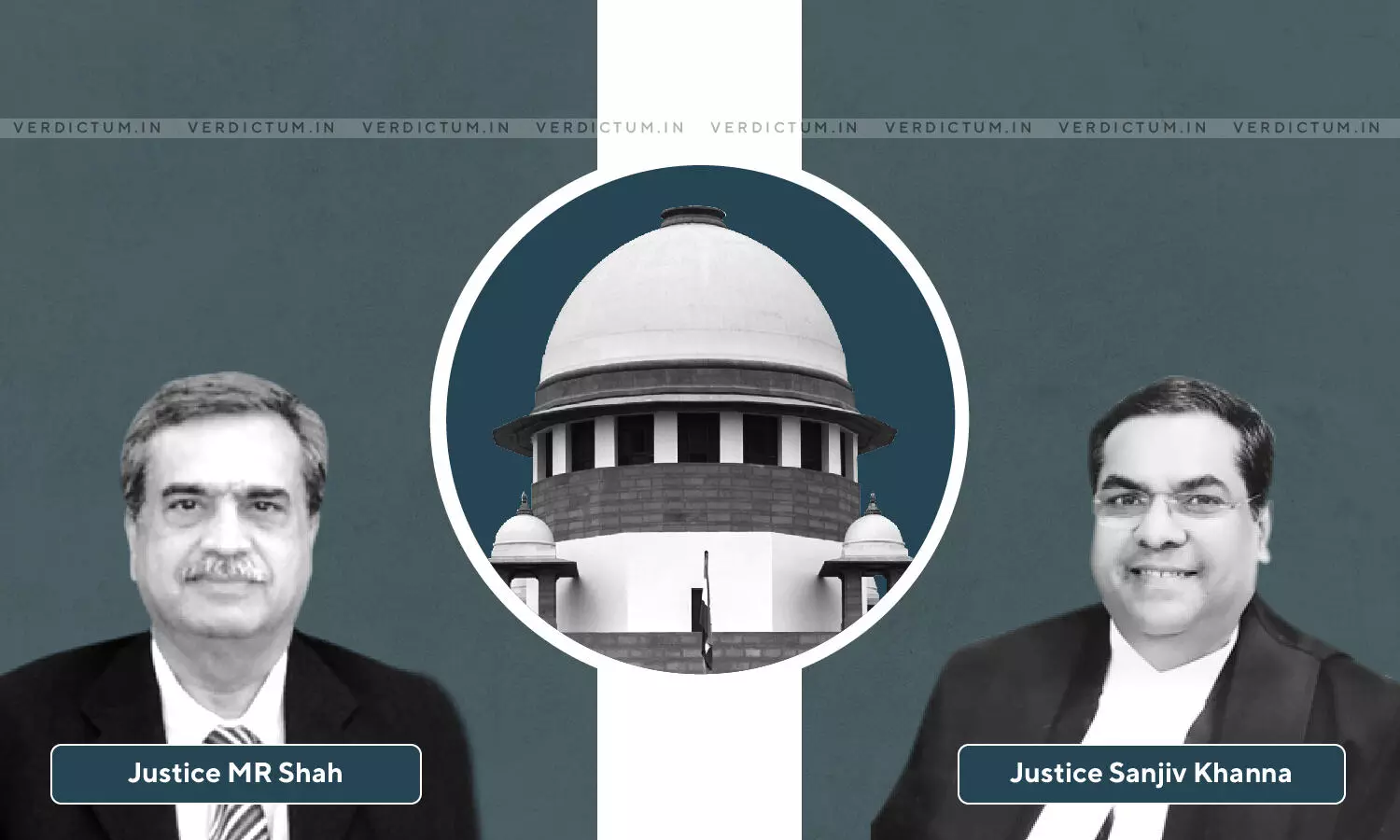
Once Harassment For Dowry Is Established, Court Shall Presume Dowry Death U/s. 304B IPC Read With Section 113B Of Evidence Act– Supreme Court
 |
|A two-judge Bench of Justice MR Shah and Justice Sanjiv Khanna has held that once the Prosecution is able to establish that a woman has been subjected to cruelty or harassment for or in connection with any demand for dowry, soon before her death, the Court shall proceed on a presumption that persons who have subjected her to cruelty with the demand for dowry, have caused a dowry death within the meaning of Section 304B IPC.
The Supreme Court was hearing appeals filed by the Appellant-Husband (Accused 1) and Appellant-Mother-in-law (Accused 3) of the deceased assailing the judgment of the Jharkhand High Court which had upheld the judgment of conviction under Sections 304B and 201 IPC read with Section 34 IPC passed by the 5th Additional Sessions, Judge. The Judge had sentenced them and Father (Expired) of Accused 1 to under rigorous imprisonment for a period of ten years and three years.
In this case, it was alleged by the father of the deceased that since they were not able to meet the dowry demands of the accused, his daughter was murdered. The accused were charged under Sections 304B/201/34 IPC along with Sections 3 and 4 of the Dowry Prohibition Act.
The High Court had observed that evidence of the father of the deceased (PW2) was relevant since prior to the death of his daughter, she had spoken to PW2 about the dowry demand made on her by the accused persons. PW4 had also corroborated the testimony of his father PW3.
All the three witnesses had taken a common stand that since the dowry demands were made close to the time that she had gone missing and that she was last residing at her matrimonial home.
The Apex Court while referring to Sections 304B IPC and Section 113B of Indian Evidence Act, observed –
"Section 304B IPC read in conjunction with Section 113B of the Evidence Act leaves no manner of doubt that once the prosecution has been able to demonstrate that a woman has been subjected to cruelty or harassment for or in connection with any demand for dowry, soon before her death, the Court shall proceed on a presumption that the persons who have subjected her to cruelty or harassment in connection with the demand for dowry, have caused a dowry death within the meaning of Section 304B IPC. The said presumption is, however, rebuttable and can be dispelled on the accused being able to demonstrate through cogent evidence that all the ingredients of Section 304B IPC have not been satisfied."
The Court further noted that circumstances set out in Section 304B IPC had been established due to the fact that the deceased had gone missing from her matrimonial home within a few months of her marriage and immediately after demands of dowry were made on her and that her death had occurred under abnormal circumstances, such a death would have to be characterized as a "dowry death".
- Concerning Accused 1 – Husband of the Deceased
"As regards A-1, the High Court and the trial Court have rightly raised a presumption against him under Section 113B of the Indian Evidence Act which prescribes that the Court shall presume that a person has caused a dowry death of a woman if it is shown that soon before her death, she had been subjected by such person to cruelty or harassment for or in connection with any demand for dowry," the Bench opined.
The Court also held that the case of the Prosecution rested solely on circumstantial evidence, no eyewitness was produced who could testify as to how the body of the deceased was found on the banks of river Barakar.
Additionally, the Bench held that there was sufficient evidence to hold Accused 1, husband of the deceased guilty. In this context, the Court noted –
"The circumstances put together, unerringly point to his guilt in extinguishing the life of his wife within a few months of the marriage on her failing to satisfy the demands of dowry."
Accordingly, the Court dismissed the appeal of Accused 1 and upheld his conviction with a direction to surrender before the Trial Court as he was on bail and undergo the remaining sentence.
- Concerning Accused 3 – Mother-in-law of the deceased
In this context, the Bench held –
"As for Parvati Devi, A-3 (Mother-in-law), from the evidence on record only certain omnibus allegations have been made against her with respect to dowry demands."
The Court noted that the only direct evidence against her was that she threatened to harm the deceased as per the testimony of PW3 (Father of the deceased).
Accordingly, the Court allowed the appeal of the Accused 3 with a direction to release her.
Click here to read/download the Judgment